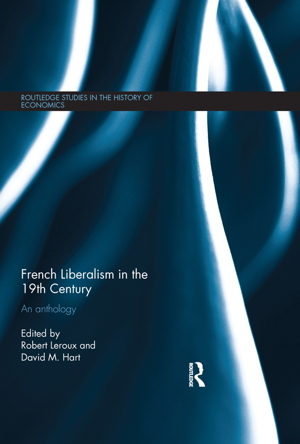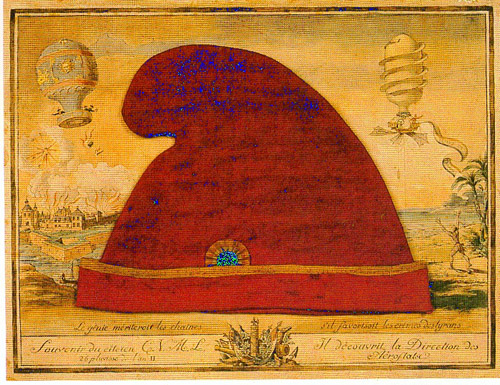
The texts in this collection are classic works about liberty which I believe deserve more careful formatting. They are either first editions or later, revised, definitive editions of the work.
The image I have chosen for the “logo” of the collection is of a “Phrygian cap”, the cap worn by freed slaves in the ancient world. This particular image comes from the French revolutionary period. It was also used by Thomas Hollis in the mid-18th century for his collection of books about liberty which he published and circulated in the American colonies in the decades leading up to the American Revolution.
To make these editions useful to scholars and to make it more readable, I have done the following:
General Formatting Principles
- the HTML version of the text has been checked against a facsimile PDF of the original; this facs. PDF is included in the “collection of files” which have been “zipped” for convenient download
- I have avoided the practice of some coders to laboriously “over code” the text by keeping the coding clean and simple, based upon the structure of the text (heading levels, quotes, page numbers, footnotes) using a common “cascading style sheet” which is modified on occasion to suit the specific text.
- once the HTML text has been formatted a text based PDF is created from it (using “Print to PDF” from the browser and then edited in Acrobat), as is an ePub version (using Calibre)
- these texts (HTML, PDF, ePub) along with the accompanying css file, facsimile PDF, and any images, are “zipped” into a collection which can be downloaded as a “collection”
(See the screen snapshots below which illustrate some of these principles.)
More Specific Formatting Principles
- I have inserted and highlighted the page numbers of the original edition (this is enable the reader to cite the exact page number of a quote)
- when possible, I have inserted unique paragraph ID numbers in the text (these remain hidden for the time being but they can be viewed in “Page Source”)
- I have not split a word if it has been hyphenated across a line or a new page (this will assist in making word searches across the text)
- I have retained the spaces which separate sections of the text (and in some instances increased them slightly to make the text easier to read, particularly to separate numbered sections of the text in the volumes by John Locke, Herbert Spencer, an d Vilfredo Pareto)
- I have created an indented “blocktext” for long quotations
- I have placed the footnotes at the end of the book or major section
- I have moved the table of contents to the top of the file and inserted “back links” to facilitate navigation of the text)
- I have used a fixed width of 600 pixels for the main body of the text to make online reading easier
- I have formatted short margin notes to float right; longer margin notes have been turned into endnotes
- I have inserted Greek and Hebrew words as images
- I have also used images to display graphs and complex tables
(See the screen snapshots below which illustrate some of these principles.)
In summary: The texts are available in ebook HTML, ebook PDF, and ePub formats, and include the page numbers of the original editions. The style sheet is designed to make them look as similar to the original edition as possible. They are also packaged in a zipped file which contains all eBook formats and copies of the original text in facsimile PDF.
Selection Criteria for the Texts
I began working on this collection in June 2022 and now have online a collection of 30 texts. These are books which I consider to be some of the most significant works about liberty ever written. I have been gradually working my way through my list of “The Great Books of Liberty” here.
Another feature which I believe is important is that whenever possible we should go back to the original text, the first edition if possible (or the final version done by the author in his lifetime, e.g. the 1790 edition of Adam Smith’s The Theory of Moral Sentiments), and in the original language.
Some of the works are multi-volume ones, such as Herbert Spencer’s The Principles of Sociology or Alexis de Toqueville’s De la Démocratie en Amérique. I have preserved the integrity of the separate volumes in my editions, but I have also taken the liberty of combining them into one long file, again to aid doing word searches across the entire text.
Given the unfortunate neglect of classical liberal sociology (see my blog post on this here I have made a conscious effort in this initial collection to give special attention to this area, as with the work by Comte and Dunoyer, Herbert Spencer, Gustave de Molinari, Alexis de Tocqueville, Vilfredo Pareto, Friedrich von Wieser, and Franz Oppenheimer.
Screen snapshots
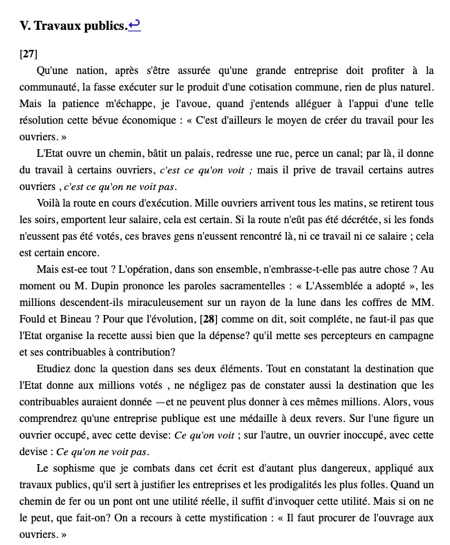
[The HTML text (Bastiat) in a browser showing the chapter heading, back link, the original page number.]
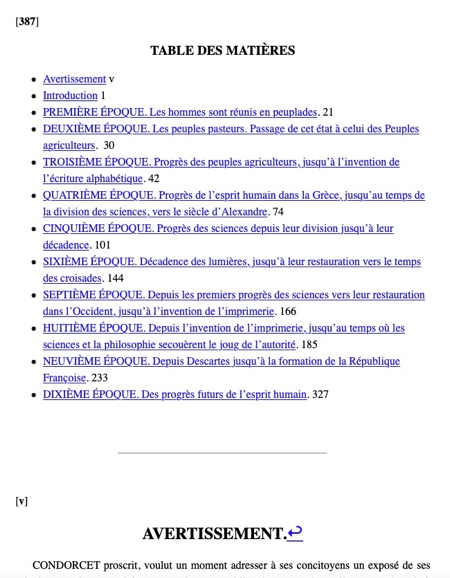
[The HTML in a browser (Condorcet) showing the original page number, the table of contents, and a chapter with a back link to the ToC.]
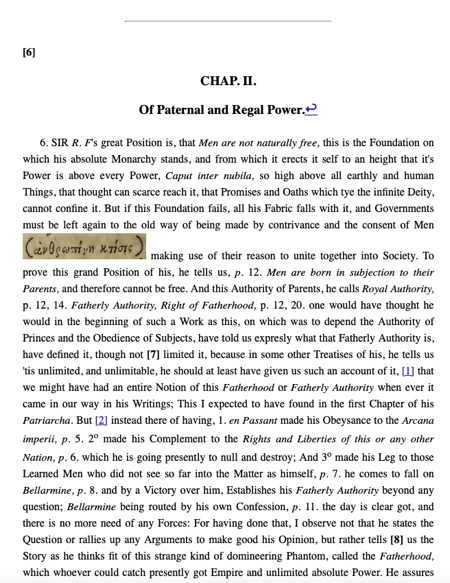
[The HTML in a browser (Locke), showing a chapter with page number, back link tot he ToC, an image of a Greek phrase, a link to a footnote (now an “endnote”).]
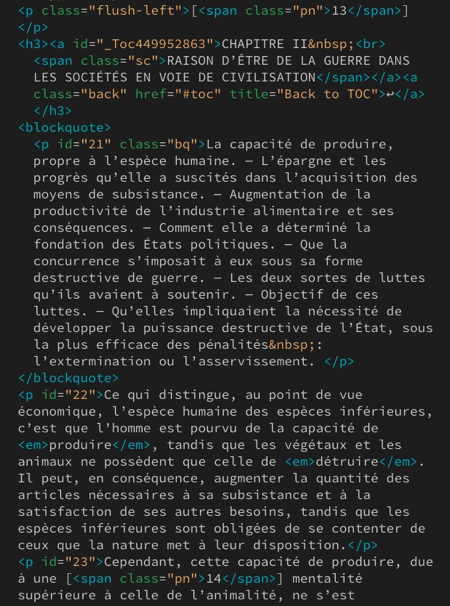
[Editing the text in Dreamweaver (Molinari). It shows the original page number (“pn”), the chapter heading with a back link to the main table of contents, a “blockquote” for a long quotation, and the unique paragraph ID number.]
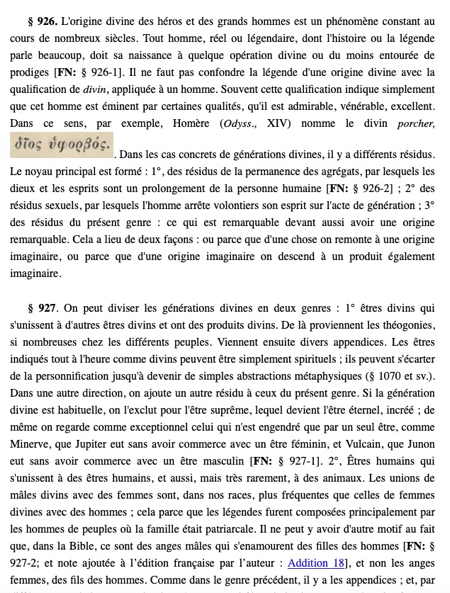
[The HTML in a browser (Pareto) showing the highlighted and numbered paragraph section, the image of a greek quote, a link to some additional text which can be found at the end of the document, a footnote/endnote reference number (which is not linked in this case), and space between the numbered sections.]
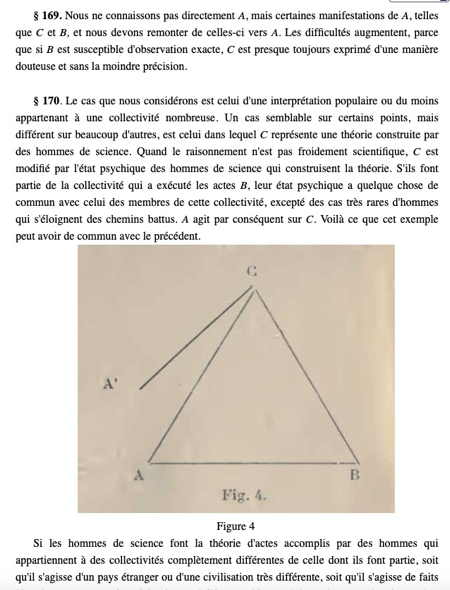
[The HTML in a browser (Pareto) showing the volume volume page number, a heading with a back link to the ToC, the space between the numbered sections, the image of a “figure”.]
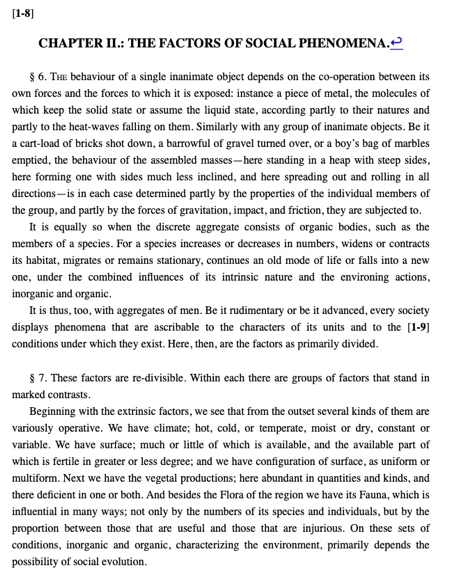
[The HTML in a browser (Spencer) showing the multi-volume page number, a chapter heading and back link, a numbered section with a gasp between it and the next.]


